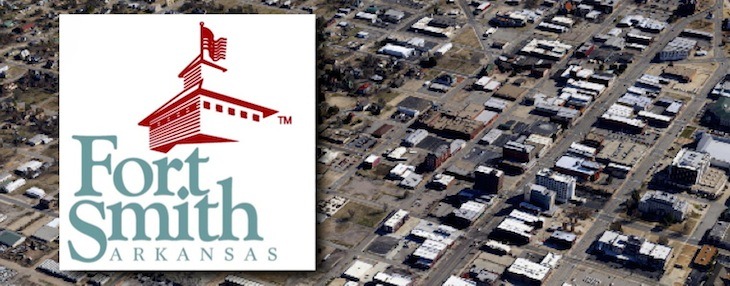Fort Smith still struggles to address water leaks; equipment and more workers needed
by November 12, 2019 5:28 pm 1,260 views

Nine months after the Fort Smith Board of Directors approved hiring additional employees for the water and sewer department as well as additional equipment, the city still has around 700 leaks needing repair.
At a Feb. 5 BOD meeting, directors approved hiring 10 additional employees for the water and sewer department who would join the 17 department employees to create nine three-person teams working to fix the 700 leaks in the city’s water system as well as taking care of any new leaks reported to the department. The goal was to be caught up on the leaks in 18 months, then utilities director Jerry Walters told the board.
The city has not received the $350,700 worth of additional equipment the board approved through a resolution Aug. 20 that is needed to create the nine teams, Interim Director of Utilities Lance McAvoy told directors at a study session Tuesday (Nov. 12). The city also has not been able to fill all 10 of the new positions.
“We hire some, but some others have left,” McAvoy said.
Though the department is working crews seven days a week in order to get a better handle on the leaks, not much progress has been made in catching up on the amount of leaks the city experiences, McAvoy said. In September, the department repaired 34 emergency leaks and 24 normal leaks, but 21 new leaks were reported. Crews also worked on adding nine new services. For the month, the department was able to reduce the number of leaks on the log by 34, McAvoy said.
In October, the department repaired 20 emergency leaks and 53 normal leaks and added 43 new services. Twenty-five new leaks were reported. While the department completed 116 total leak repairs and new service installations, the reduction to the leak log was only 48, he added. Once the new equipment arrives and more employees are hired, the work on old leaks will increase because those nine teams will be devoted strictly to repairing leaks, McAvoy said.
Directors questioned the amount of time needed to repair the leaks, saying they thought the backlog would be repaired within 18 months. McAvoy explained that the new equipment and additional hires were necessary to get things on track to diminish the backlog leaks.
“We have crews working seven days a week now, but we are not caught up. Once the new equipment arrives we can do more. We will be working hard until we are caught up,” McAvoy said, noting he will not consider it “caught up” until there are fewer than 50 leaks on the books for a month.
After completing the backlog of leaks, the teams will continue to repair new leaks, perform preventative maintenance on the water system, and replace 600 broken meter boxes. Maintenance will include “unidirectional flushing of the 720 miles of water lines and a yearly valve exercising program for the 6,637 valves in the water system” as well as work to detect unknown leaks in the system, Walters said earlier this year.
Along with getting caught up on leaks that have plagued the utility department for an extended period of time, the additional personnel, which will cost the city $409,310 annually, along with the additional equipment will reduce costs to the department. Repairing the leaks with in-house personnel rather than outsourcing will save approximately $2 million, Walters said at the time. This savings will be added to the yearly savings of paying a contractor to prevent future leak backlogs and replacement of failed valves due to lack of a maintenance program. In addition there is a potential of savings due to reduction of water loss.
McAvoy explained the priority of leaks to directors at the meeting, saying the first priority is emergency leaks where the customer is out of water or the leak is destroying property based on the amount of water flow. Second priority is scheduled leaks where locations are still valid, followed by leaks where locations are expired or have been moved. Fourth priority goes to leaks that come from directors, the mayor, city administration or senior management. Fifth priority is a pending list not scheduled but are repaired due to proximity of another leak being repaired, he said.
“We don’t have the personnel to drive around and look for leaks. We can’t see every time something needs to be fixed. Our best help is the eyes of the citizens, the board and people in other departments. If you see something, please call and let us know,” McAvoy said.
